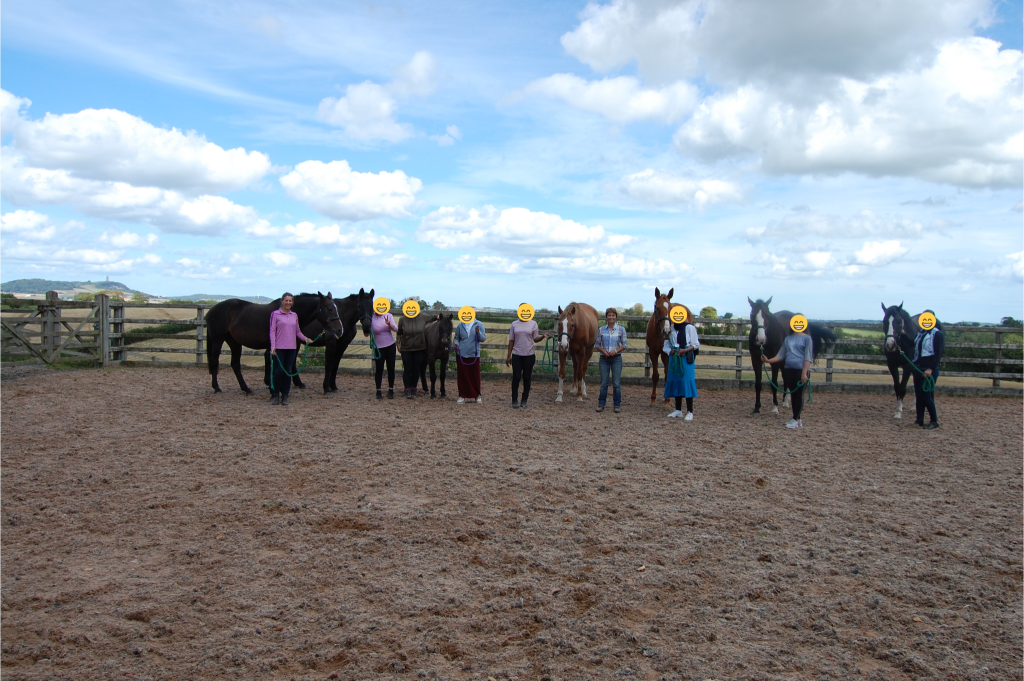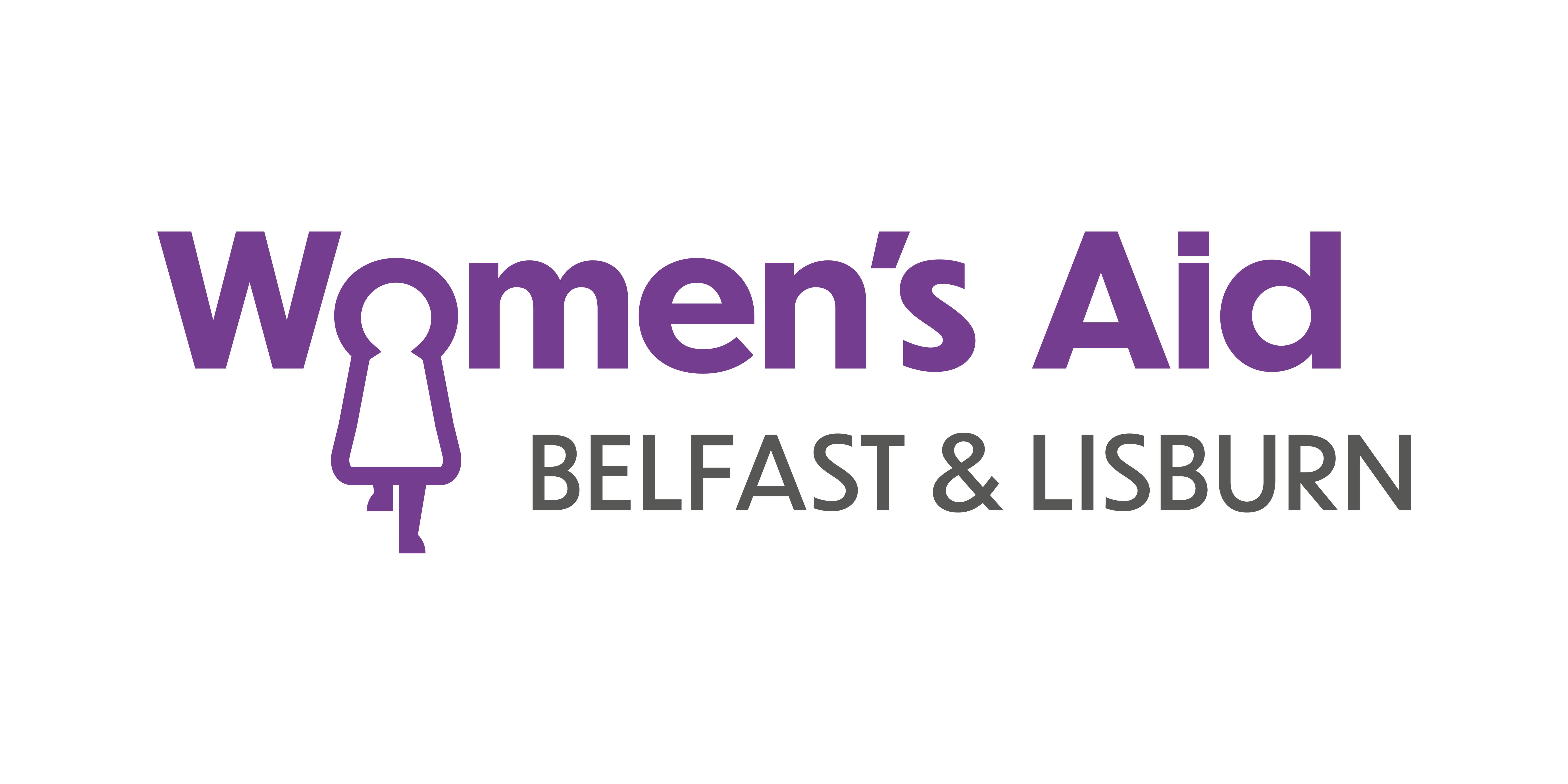From Nigeria to Newtownards – an equine journey to joyfulness
Words by Aongus O’Keeffe, Modern Slavery Human Trafficking Branch | Safer Communities Directorate, Department of Justice
Adele (not her real name), a young female from Nigeria was trafficked into the UK in 2022, undergoing unthinkable abuse and exploitation along the way. That is in the past. She is now determined to create a better future through the support she is receiving from Belfast & Lisburn Women’s Aid here in Northern Ireland.
To help with the recovery journey, some of the staff at Women’s Aid have identified less conventional ways of helping Adele and others like her. Horses for People have been working with people who have experienced extreme trauma in an effort to build confidence and shift the dial in their trauma recovery journey. They facilitate close connections between traumatised individuals and their mainly ex-showjumping horses to help them tap into the sensory and communication qualities innate in horses. In a phrase – Equine Therapy.
As a natural born sceptic I wouldn’t have easily bought into the benefits of such therapy. How wrong I was!!

I arrived at this beautiful setting overlooking Strangford Lough on day two of a two-day workshop. Adele was one of six young females who had been identified to attend by the staff at Women’s Aid based on the extreme trauma and experiences they had endured, and their related suitability for equine therapy. As they chatted to me, I listened to each of the six young females emotively express the happiness, the joy, the confidence, the sense of purpose that working with the horses had brought them in just one day. All but one had only ever seen a horse on TV and had to overcome the fear and anxiety that an animal of that size can invoke at close quarters for the uninitiated.
We proceeded into the stables where they each had an opportunity to spend time brushing down the horses that had been assigned to them on day one. It was much more than simply brushing and grooming the horses though – in a short space of time they were making very difficult to explain, emotional connections too. It was as though they were releasing trauma through and with their horse. I witnessed a number of the girls physically embracing their horse, releasing deep-felt trauma and emotion. While I will never fully understand how it must have felt for them, bearing in mind the unimaginable trauma and abuse they have been through, the impact felt raw and powerful.
Once all six were eventually prised away from the horses, we were brought down to the paddock. Six horses and a couple of donkeys were trotted down into the one ~100m x 30m paddock. This was an opportunity for June, the workshop facilitator and stable owner, to provide insight into how horses communicate and maintain harmony in the herd. June talked the group through the levels of feeling the horses experience and how they respond on an escalating scale to the things they like, can tolerate or really dislike. The key is in the ears – in short the more pinned back = the more they dislike!! The legs and squealing will indicate more extreme dissatisfaction and such gestures give signals to other horses to back off or stop what they’re doing. Valuable messages conveyed given what these girls have been through.
After a lovely lunch and getting to know each other a bit better, it was back down to the paddock where everybody would have a chance to take things to the next level – walking and then cantering the horses. A simple obstacle course had been set up for this purpose. Each participant would be given a turn to walk a horse around the course and finish up by getting the horse to canter the length of the enclosure.
This exercise was all about the women taking control of their situation, building their confidence and self-esteem. These individuals have been exploited, abused and controlled for extended phases of their lives. They have not been free to make the most basic decisions about their lives. Someone else decided when they woke up, where they worked, and who touched their bodies. Their traffickers stole most of the money they earned and they were not able to quit their jobs to compete for better ones.
This is the start of their journey to regain control, rediscover their confidence, take their destiny into their own hands and build a new life free from slavery and coercive control.
It was only because Adele reported her story and agreed to enter into the National Referral Mechanism (NRM)*that she is able to access a range of funded support and services while she awaits a Home Office determination on her modern slavery / human trafficking victimhood status. DoJ have a statutory requirement to provide support and services to all victims and potential victims who enter the NRM. Migrant Help & Belfast / Lisburn Women’s Aid currently deliver this support on behalf of the Department to over 500 individuals recovering from their experience.
This is happening in our communities and is hidden in plain sight. Would you know how to Spot the Signs of modern slavery & human trafficking?
If you or someone you know has been affected by this or similar issues you can access support and assistance through one of the following:
Migrant Help – Tel: 02892 448449 / Email: northernireland@migranthelpuk.org
Modern Slavery Helpline – Tel: 0800 0121 700
Call us on 028 9066 6049 or email support@belfastwomensaid.org.uk
*The National Referral Mechanism (NRM) is a framework for identifying victims of human trafficking and ensuring they receive the appropriate protection and support. The NRM is also the mechanism through which the Home Office collects data about victims.
Show all posts
